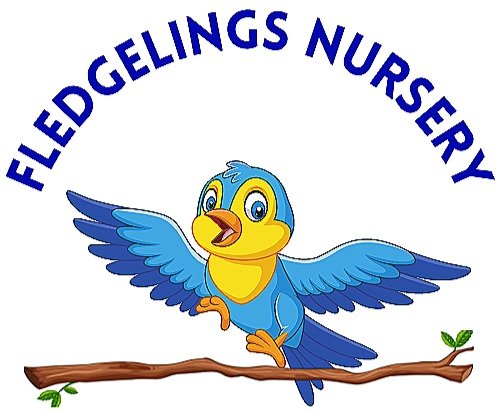
Our Curriculum
At Fledgelings Nursery, our curriculum follows the Early Years Foundation Stage (EYFS) framework, which supports every child’s learning and development from birth to five years.
We believe that children learn best through play, exploration and positive relationships in a safe and stimulating environment.
Our Guiding Principles
Our approach is built around the four key EYFS principles:
A Unique Child – Every child is unique, constantly learning, and capable of resilience, confidence, and self-assurance.
Positive Relationships – Children learn best when they feel safe and cared for, supported by nurturing relationships with adults and peers.
Enabling Environments – Children thrive in environments that respond to their individual needs and provide rich learning opportunities.
Learning and Development – Every child learns and develops in different ways and at different rates, including those with special educational needs and disabilities (SEND).
Learning Through Play
At Fledgelings Nursery children learn through purposeful play.
We provide a balance of:
Child-initiated play – where children follow their own interests and ideas.
Adult-led activities – planned by practitioners to introduce new concepts and extend learning.
Through play, children develop communication, curiosity, problem-solving and confidence while building friendships and independence.
Areas of Learning and Development
The EYFS is divided into seven areas of learning, all of which are interconnected.
Prime Areas
Personal, Social and Emotional Development – Helping children build confidence, independence, and respect for others.
Communication and Language – Encouraging speaking, listening, and understanding through stories, songs, and conversation.
Physical Development – Supporting both fine and gross motor skills through active play indoors and outdoors.
Specific Areas
Literacy – Introducing early reading and writing through stories, mark-making, and phonics play.
Mathematics – Building an understanding of numbers, patterns, and shapes through hands-on experiences.
Understanding the World – Exploring the environment, technology, and different cultures to make sense of the world around them.
Expressive Arts and Design – Encouraging creativity through music, movement, art, and imaginative play.
Characteristics of Effective Learning
We nurture how children learn, not just what they learn.
The EYFS identifies three “Characteristics of Effective Learning”:
Playing and Exploring – children investigate and experience things around them.
Active Learning – children keep on trying when they encounter challenges.
Creating and Thinking Critically – children develop their own ideas and make links between experiences.
These characteristics help children become confident, motivated, and independent learners.
Observation, Assessment and Parent Partnership
Our practitioners observe each child’s progress regularly and record their learning journey using Tapestry, our secure online platform.
Parents can view updates, share photos from home, and celebrate achievements together with us.
We value strong partnerships with families and encourage open communication at all times.
Supporting All Children
We are an inclusive nursery and provide individual support for every child, including those with SEND (Special Educational Needs and Disabilities).
Our team works closely with parents, carers, and external professionals to ensure every child receives the help and encouragement they need to thrive.
Preparing for School
As children approach school age, we focus on developing the key skills and confidence needed for a smooth transition.
We work closely with local primary schools, share transition reports, and help children feel excited and ready for their next adventure.
Book a Visit
Come and see our curriculum in action!
We’d love to show you how we help children learn, play, and grow every day.
Contact us to arrange a visit or find out more about enrolling your child.

